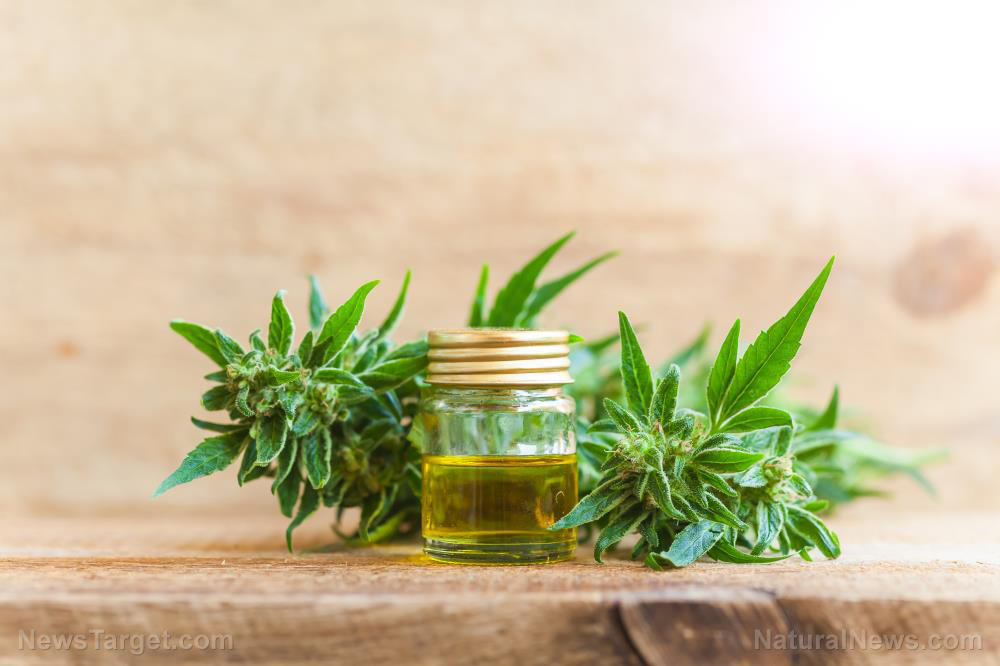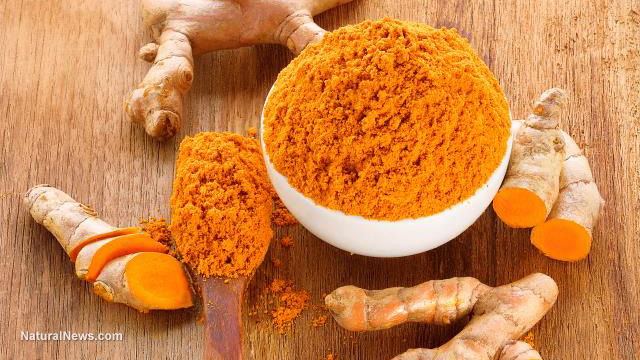Turmeric extract combats the joint-damaging effects of arthritis
11/14/2018 / By Cassie B.

Arthritis is an unfortunate part of getting older for many people. If you’re not experiencing it now, there’s a good chance you will as the CDC predicts that one out of every two individuals will develop osteoarthritis by their 85th birthday. The good news is that you might not be stuck taking pills to treat the condition thanks to new discoveries related to one of nature’s top anti-inflammatories.
It’s widely known that curcumin boasts powerful anti-inflammatory effects, but its poor bioavailability in the body can make it challenging for people to get enough of it in their system to make a difference. That’s why many of the studies illustrating curcumin’s benefits for arthritis have involved injecting large amounts of it.
Now, there is good news for people suffering from arthritis who don’t want to resort to pharmaceuticals as researchers have developed a specialized complex of curcumin that offers seven times the bioavailability of standard curcumin.
The new complex is known as BCM-95, and it contains curcumin that has been purified and reconstituted. Researchers tested out the complex in a study involving rheumatoid arthritis patients. One group was assigned 500 milligrams a day of the new curcumin complex, the second group was given 50 milligrams a day of the standard arthritis medication diclofenac, and a third group took both the curcumin and the diclofenac.
The researchers measured the patients’ levels of joint swelling and tenderness to determine how the various treatments might have improved their symptoms using increments of 20, 50, and 70 percent. They found the group that took only curcumin experienced the best outcome, with 93 percent reporting a significant reduction (20 percent) in pain and swelling. Nearly three fourths of this group noted a 50 percent reduction, while a third noted 70 percent less joint swelling and tenderness.
The group that only took curcumin also came out on top when it came to a reduction in pain; the group noted a decrease in pain of 60 percent. You might think that adding the diclofenac medication to the curcumin would reduce their pain even further, but the group that took both treatments reported a drop in pain of 56 percent. Meanwhile, those who took the diclofenac on its own only noted a 50 percent reduction in pain.
Inflammation markers down
Self-reported levels of pain are inherently subjective, although there’s a lot of value in feeling improvements whether they can be scientifically measured or not. However, the researchers also looked at a concrete measurement of inflammation: erythrocyte sedimentation rates. They found that those taking the curcumin with diclofenac saw their erythrocyte sedimentation rates drop by 13.3 percent, while those taking just curcumin noted slightly lower drop of 11.2 percent. Those taking just diclofenac fared the worst in this regard with a reduction in their sedimentation rate of just 8.3.3 percent.
They also looked another inflammation marker, C-reactive protein measurements. Here, the difference between those taking curcumin and the other groups was even more noticeable. The group that only took curcumin saw their CRP reactive protein levels cut in half, while the diclofenac group experienced no CRP reductions and actually had slightly higher amounts of the inflammatory protein.
Effective and far less risky
In addition to its superior performance, curcumin also has an edge what it comes to side effects. The patients in the curcumin-only group did not experience any adverse reactions or side effects. Meanwhile, those who took diclofenac experienced problems like liver toxicity, allergic reactions, and gastrointestinal bleeding. Other drugs that are used to treat rheumatoid arthritis aren’t much better. Methotrexate, for example, suppresses the immune system and can raise your risk of infection.
Because curcumin is so good at addressing inflammation, its uses extend far beyond treating rheumatoid arthritis. It also can help prevent or alleviate cardiovascular disease, diabetes, Alzheimer’s disease, multiple sclerosis, and even cancer.
Sources for this article include:
Submit a correction >>
Tagged Under:
arthritis, curcumin, diclofenac, Natural Alternatives, natural anti-inflammatory, natural pain relief, natural remedies, rheumatoid arthritis, turmeric
This article may contain statements that reflect the opinion of the author
RECENT NEWS & ARTICLES
ArthritisCures.News is a fact-based public education website published by Arthritis Cures News Features, LLC.
All content copyright © 2018 by Arthritis Cures News Features, LLC.
Contact Us with Tips or Corrections
All trademarks, registered trademarks and servicemarks mentioned on this site are the property of their respective owners.



















